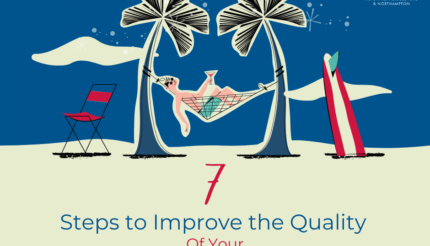Part 2 of the Guide to Building Resilience in Your Business
Choose Products and Services with Care and Attention
As Brad Sugars, founder of the world’s most successful business coaching company explains, if he had lived during the era of the famous California gold rush, he would not have chosen to follow the masses in search of elusive gold. Instead, he believes, it would have been easier and smarter to set up a roadside stand and sell tin pans. That idea sounds completely counterintuitive, but those who think against the crowd and buck the trend often emerge much more successful and prosperous than their peers.
Let’s consider the historical facts. While only a small percentage of prospectors actually struck it rich, 100% of them bought at least one pan in order to help them sift through mud in search of the precious metal. Those who supplied the tools of the trade made plenty of money because they did not have to worry about creating the market for their product. They simply and cleverly identified a niche and filled it. By doing so, they fulfilled their entrepreneurial dreams while customers sought them out.
Indispensable Businesses are Recession-Proof
Let’s tell a little story… The biography of the businessman behind the legend of Johnny Appleseed. While most people believe that the apple-sowing mendicant was a fictional character, the truth is that there was a real person upon whom the Johnny Appleseed folklore and mythology is based. John Chapman was his name, and biographer and historian Robert Price chronicled his business life in a book published in 1954.
Chapman was, for all intents and purposes, one of the first franchisers in the USA. Although myth describes him as someone who simply walked around randomly planting apple trees, he actually created a carefully conceived business model that was absolutely recession-proof. Upon his death in 1845, he owned more than 1,200 acres of prime real estate. This was because he found both a product to sell and a way to deliver it to customers that was unique, ingenious, and profitable.
Frontier settlers needed sugar, but it was prohibitively expensive. A more affordable substitute was sweeteners made from apples – what we refer to today as fructose. In addition, apples were also a valuable foodstuff by themselves. But apple trees were few and far between in the wilderness of North America. So Chapman would go deep into the frontier, plant an orchard, and then – as the settlers arrived – he would sell the young trees to them. By establishing these frontier tree farms or nurseries across the USA, he ensured a strong demand for his product. He didn’t even have to deal with labor intensive apple cultivation and harvesting – he just sold young trees that grew easily in the fertile frontier soil.
His overhead was tiny, because he would use the seeds of one tree to grow dozens of others in a true franchise spirit. Each sapling he sold brought a good price. Even though settlers had no extra money, they considered the purchase of a healthy tree to be a wise long-term investment. And according to many land grant laws that were intended to discourage real estate speculation, land owners were required to plant
a minimum number of fruit trees on their homesteads. So Chapman had a product that people not only wanted, but were also required by law to have. Highly motivated customers came to him by word of mouth.
In order to keep moving, branch out, and stay ahead of the national migration of his customers, Chapman decided to hire people to manage his orchards in his absence. He would go somewhere, start a new nursery, and then hire and train a local person to run it and bank the profits which he shared with them. Eventually, Chapman had an entire network of nurseries that were paying him dividends. Towards the end of his life, he moved back to his native Ohio and retired as a very wealthy man, while the money kept rolling in from his national orchard business.
When he first began to ply his trade he was in poverty, but by the time he died his business was worth millions in today’s inflation-adjusted dollars. His business was indispensable, and people sought him out to buy his products. In short, he had an exemplary business model.
When an employee becomes indispensable to a boss, they ensure that they won’t be fired, and will be first in line for a promotion. Similarly, those businesses that become essential and irreplaceable to their customers thrive with longevity, while other companies tread water and eventually succumb to red ink.
This blog post is part of our ActionCOACH guide ‘Building Resilience’ that can be downloaded here





